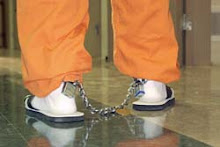Report of findings of abuse and neglect
Mississippi Juvenile Justice System
Attorney General's Report
________________________________________
The Mississippi Department of Human Services operates Oakley Training School in Raymond, Mississippi (“Oakley”) and the Columbia Training School in Columbia, Mississippi (“Columbia”) through the Division of Youth Services.
The average length of stay for youth in the training schools is two to three months, but some youth may stay up to six months or longer.
The majority of youth committed to Oakley and Columbia are nonviolent offenders. For example, 75 percent of the girls at Columbia are committed for status offenses, probation violations, or contempt of court.
The majority of boys at Oakley are committed for property offenses, lower level drug possession charges, or auto theft charges.
Youth offenders who are mentally ill or have mental retardation are to be committed by the Mississippi youth courts to rehabilitation facilities operated by the Mississippi Department of Mental Health.
On May 8, 2002, Assistant Attorney General Ralph F. Boyd, Jr. launched an investigation at Oakley and Columbia and prepared a report of findings at these two programs in Mississippi. Below are excerpts from that report.
Their investigation was pursuant to the Civil Rights of Institutionalized Persons Act, 42 U.S.C. § 1997 (“CRIPA”), and the Violent Crime Control and Law Enforcement Act of 1994, 42 U.S.C. § 14141.
They conducted on-site inspections of Oakley with expert consultants in:
- Juvenile justice administration
- Psychology
- Medicine
- Education
- Sanitation
They found:
- Conditions at Oakley and Columbia violate the constitutional and statutory rights of juveniles
- Youth confined at Oakley and Columbia suffer harm or the risk of harm from deficiencies in the facilities’ provision of mental health and medical care, protection of juveniles from harm, and juvenile justice management
- Sanitation deficiencies at Oakley
- Both facilities fail to provide required general education services as well as education to eligible youth as required by the Individuals with Disabilities Education Act (“IDEA”), 20 U.S.C. § 1401, et seq., and Section 504 of the Rehabilitation Act of 1973, 29 U.S.C. § 794
- Oakley and Columbia violate the youths’ First Amendment rights by forcing them to engage in religious activities
- On June 19, 2003, the Assistant Attorney General issued his report of findings to the Governor and sent copies to:
- The Interim Executive Director and Division of Youth Services at the Mississippi Department of Human Services
- The Executive Director of Oakley Training School
- The Executive Director of Columbia Training School
- The US Attorney for the So. District
- Two judges
- The United States Department of Education
- The Office of Special Education and Rehabilitative Services
During their visit to the girls’ Special Intervention Unit (SIU) at Columbia, there were 14 girls present.
- Nine of the girls had been locked in bare cells for more than a week
- One girl had been locked in a bare cell for 114 days
- The conditions observed in the SIU are particularly inhumane
- The cells are extremely hot with inadequate ventilation
- Some girls are naked in a dark room where they must urinate and defecate in a hole that they cannot flush
- Restraint chairs are used for punishment in violation of Columbia’s own policy and procedures manual
- Pepper (OC) spray is sometimes used in response to a youth’s minor misbehavior
- Some girls are hog-tied
Girls are often not given access to basic necessities, such as:
- Water
- Personal hygiene items
- Bathroom facilities
Girls are not given sufficient mental health services. Given the significant number of juvenile girls in Mississippi juvenile facilities who suffer from various forms of mental disorders, particularly separation anxiety disorder, it was recommended that the use of the SIU in its present form should be banned at Columbia.
Youth at Columbia describe a number of abusive practices imposed by staff:
- Youth report “sitting in a chair,” in which youth are required to assume a sitting position while holding their backs up against the wall with knees bent for as long as 20 to 30 minutes
- Youth also are forced to perform “guard duty”: Youth are awakened in the middle of the night, required to get dressed, and walk inside the cottage for hours with their hands to their heads (similar to a military salute) from bed to bed
In June 2002, according to the SIU log book, a staff person was given permission to:
- Awaken the boys at midnight
- Take away their mattresses and covers
- Force them to perform “guard duty”
- Boys housed in the cottages are sent by drill instructors to the SIU during the day for punishment for failing to perform exercises.
SIU staff confirmed that boys’ punishment may last for hours and consists of:
- Running around tables in the SIU day room with mattresses on their backs
- Girls are punished in the military field by:
- Being forced to run with automobile tires around their bodies
- Carrying logs
- Girls reported being:
- Forced to eat their own vomit if they throw-up while exercising in the hot sun
- Our juvenile justice expert consultant observed a cottage staff person:
- Punish an entire cottage by forcing youth to run inside the dorm room silently for at least 25 minutes while other youth showered
- One youth had broken his toe by hitting it on a bed while performing this exercise
These exercises and disciplinary practices:
- Serve no penological purpose
- Serve no rehabilitative purpose
- Are cruel and demeaning
- Are unsafe because when this type of physical punishment is imposed, the facility does not monitor the physical well-being of the youth
In the girls’ SIU at Columbia, staff reportedly have:
- Hit
- Choked
- Slapped girls
- Girls reported that a ten-year-old girl was slapped by a male security guard
- A young boy in the boys’ SIU reported that before being taken to the SIU,
-11security slapped him twice in the face and placed his neck in a “sleeper hold
- Use of pepper spray was found at both Oakley and Columbia:
- Use of excessive force
According to the facilities’ policy, OC spray may be used in only three situations:
- To “quell a riot”
- To “prevent further injury when students are fighting” all other efforts to resolve the fight have failed
- If a youth possesses a device “clearly intended to be used as a weapon and refuses to disarm”
- Incident reports and youth complaints reflect that youth are sprayed arbitrarily and in violation of facility policy and law.
At Columbia, boys in the SIU reported that staff:
- Sprayed under their locked cell doors
- Staff sprayed boys in the face while they were hog-tied
- Staff sprayed into the air while boys were doing exercises for punishment in the SIU
- Suicidal youth are sprayed for their suicidal gestures and behaviors
- Youth locked in isolation rooms who bang on the door of their cell are sprayed
- A suicidal girl was sprayed because she refused to remove her clothes before being placed in the “dark room”
- Staff routinely sprayed youth for failing to perform military exercises
- A review of incident reports confirms that OC spray is used when youth fail to exercise. For example, a 13-year-old boy was sprayed because he did not perform exercises.
Reportedly, he was punished further by being forced to do:
- 100 squat thrusts
- 100 push ups
- 100 jumping jacks
If a youth could not “run the ridge” they were:
- Placed in a sleeperhold (a security officer stands behind a youth with his arm around the neck of the youth, cutting off the ability to breath)
- Sprayed by staff
- Pepper spray was used regularly at both facilities for minor infractions or for punishment.
_________________________
Summary prepared by CAICA
November 10, 2007
© 2007
www.caica.org
__________________________
Original Report: http://www.usdoj.gov/crt/split/documents/oak_colu_miss_findinglet.pdf



